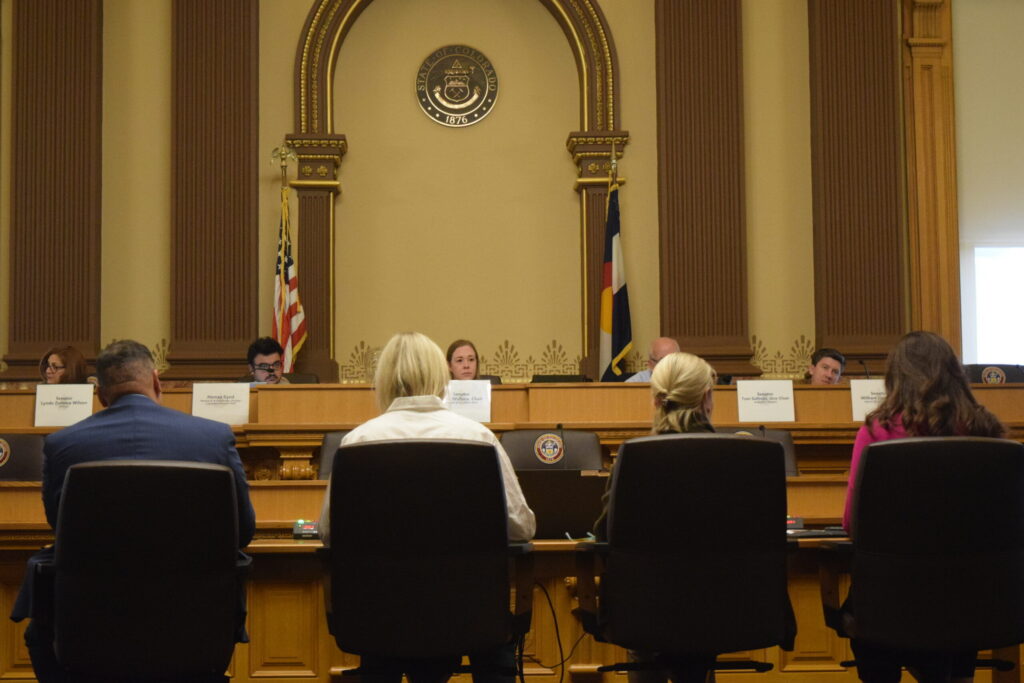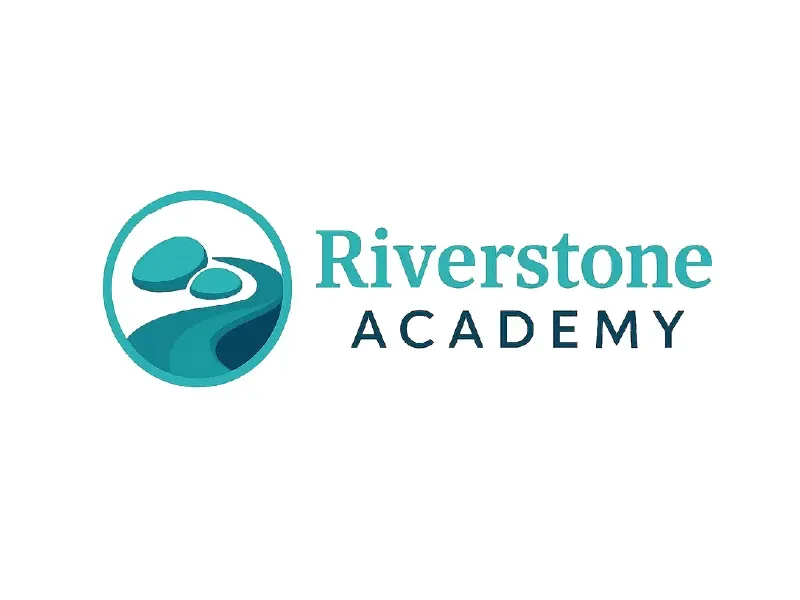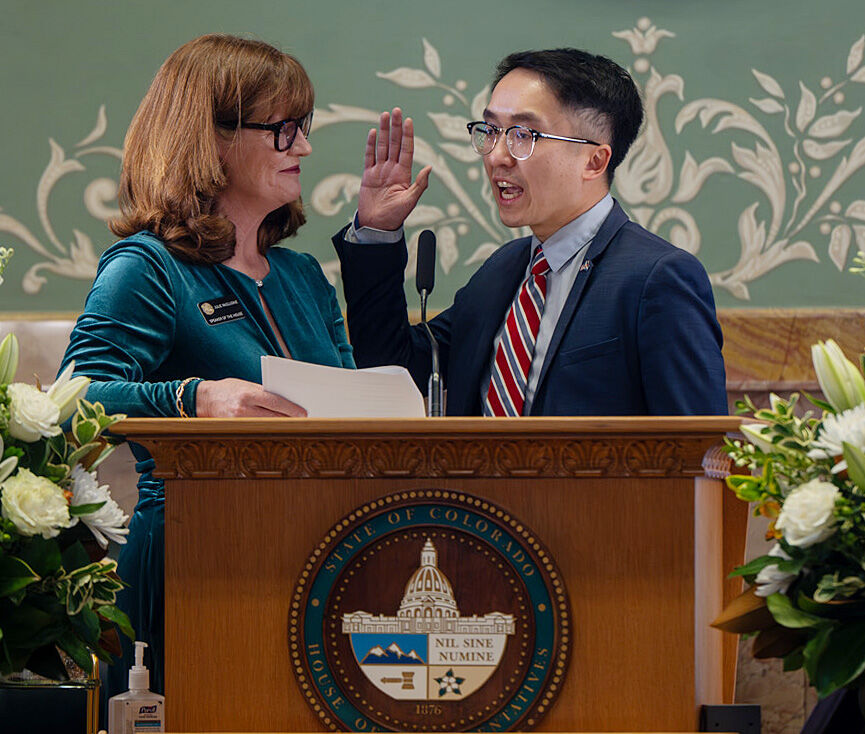Colorado proposal to create library committees to consider whether to ban books fails to advance

A Senate panel rejected a bill that would have created an official process for parents, students and the public to object to materials in a school or public library.
The bill — which was heard by the Senate Education Committee but not voted on — dove into an issue that has divided communities and at times pitted parents against each other across America. Following the hearing, committee members on Wednesday ultimately decided not to move the bill forward.
Senate Bill 049 would have created the Committee for School Libraries composed of individuals appointed by school districts to consider requests and complaints. A separate committee would have been created at local levels for public libraries. Members of the committee were to be appointed by each library district’s board of trustees.
Amie Baca-Oehlert, president of the Colorado Education Association, said supporters are disappointed with the bill’s failure to advance.
“The bill represented a vital opportunity to defend academic freedom, intellectual curiosity and an inclusive education for Colorado students across all four corners of our state,” Baca-Oehlert said. “While this setback is disheartening, it serves as a reminder of the importance of unity and dialogue in the pursuit of positive change. In the future, we would urge all stakeholders to come together in the spirit of compromise and common purpose, recognizing that the freedom to read is a cornerstone of our democratic society.”
The bill would have prohibited the removal of a “resource” — a book, magazine, newspaper, movie or CD — while the request to do so is pending. It allowed only one challenge against a specific resource within a five-year timeframe.
Notably, the proposal also would have forbidden a “resource” from being excluded because of its “ethnic origin,” “ethnic background” or “gender identity” of those who contributed to its creation. It also forbade removal over disagreement with a “resource’s” partisan or doctrine stance.
The bill did not outline a specific criteria for evaluating contested materials. Bill sponsors said those determinations would be left to the discretion of each committee and that the bill’s intention is simply to ensure all libraries have some form of review process in place.
Supporters said the bill is necessary because efforts to ban books run counter to the idea of exposing readers to different worldviews and perspectives. Critics, meanwhile, many of the books targeted for a ban contains pornographic materials, which they argue have no place in a setting.
During the bill’s committee meeting, Sen. Lisa Cutter, D-Littleton, one of the sponsors, acknowledged that the bill poses a difficult subject, saying she and her co-sponsor are committed to ensuring all opinions are honored and respected.
The legislation is important, as 10% of book challenges in the country occur in Colorado, she said.
Elektra Greer of the Nederland Community Library said 136 unique titles were challenged last year, a 143% increase since the year before.
Opponents: Bill violates parental rights
Opponents of the bill did not take issue with designating a group of people to review objections to library content, but they argued that committees could have inherent bias.
“What is most disturbing is that this bill creates a new committee to evaluate objections to questionable materials in libraries. Why does a committee with no representation from my school get to decide what library materials do or don’t go into my school?” she said. “The district doesn’t know my students or their families. It has no business telling me what I can and cannot include in my library.”
“Districts must be free to continue to develop policy that meets their districts’ needs without the mandates of this bill,” said Hilary Daniels of the Colorado Association of School Boards.
Dee Dee Vicino, Head of Schools at Colorado Early Colleges, said the bill encroaches on parental rights.
Proponents: Banning books limits access to diverse perspectives
Sen. Chris Kolker, D- Centennial, who sponsored the bill, said book challenges and bans in the U.S. have risen exponentially in recent years. He argued that libraries play an important role in exposing readers to different worldviews and perspectives, and that banning books restricts access to these valuable resources.
“The celebration of reading is intrinsically tied to the celebration of democracy itself, and banning books was once seen as un-democratic and against our freedom of speech principles, something the Nazis did to silence minority opinions,” Cutter added.
Supporters also contended that banning or removing books from libraries is censorship and infringes upon patrons’ First Amendment rights.
“I have seen library workers from the rank-and-file all the way up to the directorial level pressured by governing boards who push ideological agendas that stand counter to our ethical principles,” she said.
Establishing a committee to review objections would ensure all challenges would receive a fair and unbiased consideration, she added.
Brooky Parks, a former teen services librarian at the Erie Community Library, said she was fired after she promoted what she described as “anti-racism” and LGBTQ history workshops for teens. Parks said the workshops drew significant backlash from her library’s board of trustees that had a policy against offering programs deemed “polarizing or intentionally inflammatory.”
Parks, who sued the library and won, said she is still picking up the pieces two years after the incident, which left her unemployed for eight months and nearly penniless.
“I can’t even begin to describe what a profound impact this injustice has had on me,” Parks said. “I support this bill because all members of the community deserve to be valued and served by their library because there should be protections in place for librarians so that they don’t have to go through what I did for valuing and serving all members of my community.”













